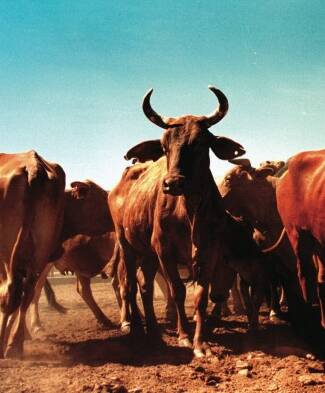THERE’S no question the federal government’s decision to scupper a foreign takeover bid of Aussie beef producer S Kidman & Co is in the national interest.
Subscribe now for unlimited access.
$0/
(min cost $0)
or signup to continue reading

The beef giant, which has pastoral leases over more than 100,000 square kilometres of land across three states, is the largest private landholder in Australia and an iconic part of the nation’s rural landscape.
The story of founder Sidney Kidman is the stuff of legend.
In 1870, a 13-year-old Kidman took a step into the abyss, leaving his Adelaide home with only 5 shillings and a one-eyed horse. Through sinew, sweat and an entrepreneurial spirit, he went on to form S Kidman and Co.
His legacy endures through the company and numerous landmarks, including the Kidman Way in the Riverina.
Forget the hand-wringing from the free-marketeers – if we were to sell the company to foreign interests, we would be selling a part of the nation’s soul. On a more tangible level, the sale would have shifted profits offshore and potentially jeopardised jobs.
The Nationals, so often accused of being the lapdogs of the Liberals, should be commended for exerting pressure in the joint party room and standing up for the bush.
Much has been said about foreign investment in Australia in recent years, some of it cloaked in xenophobia.
We should not be blind to the benefits foreign investment can bring, funding nation-building infrastructure projects that we could not possibly fund on our own.
But the issue of overseas interest in our farmland is a little more fraught. Like vultures on a rotting carcase, overseas investors – many from tiger economies like China – are snapping up prime land from financially wounded farmers.
Tens of billions of dollars of agricultural assets are now in foreign hands, with about 12.5 per cent of our farmland now at least partly owned offshore.
If the land grab continues at its current rate, it is conceivable Australia could become a net importer of food by 2050.
For so long, Australia has ridden off the sheep’s back. But by allowing this foreign farm buy-up, we are selling the sheep instead of the wool. And that could never be in the national interest.

